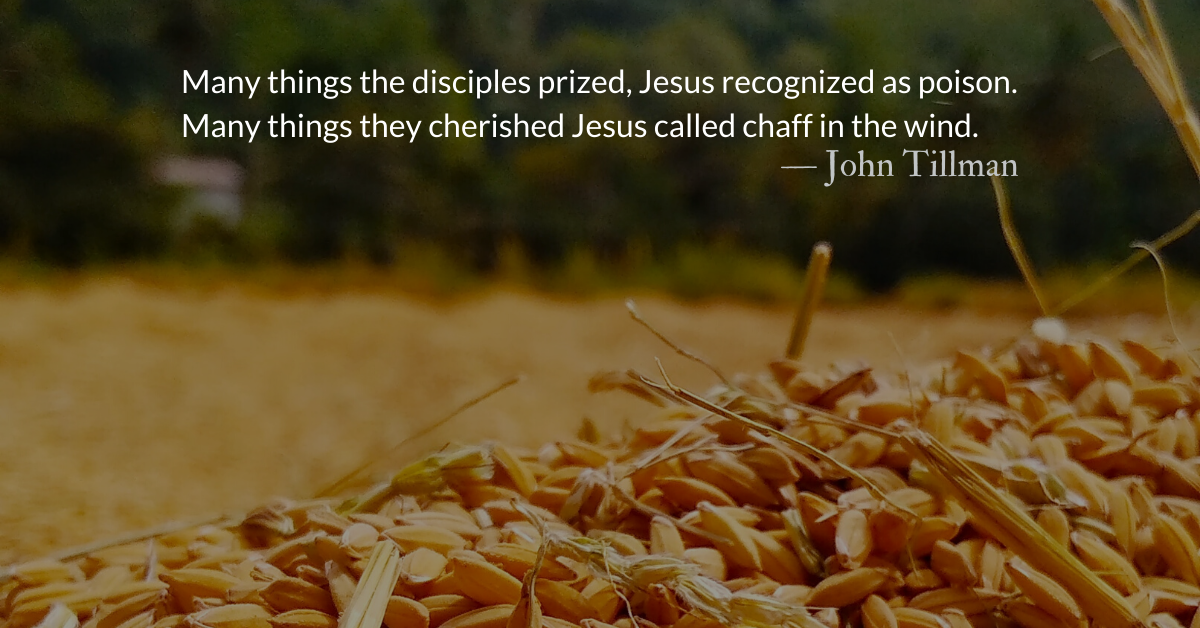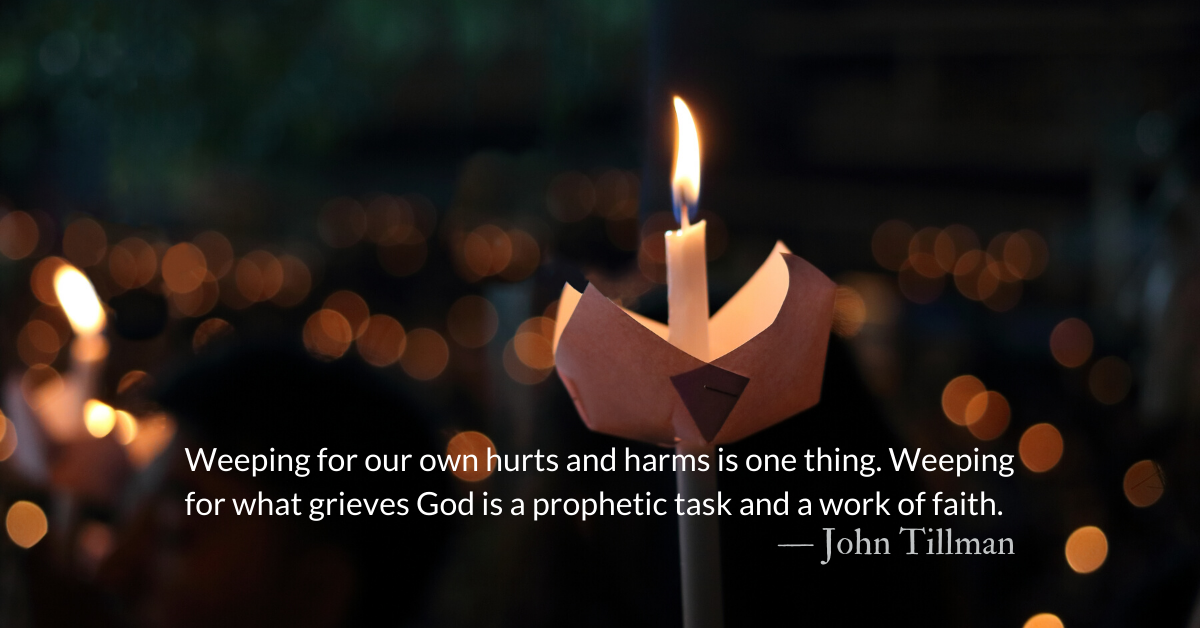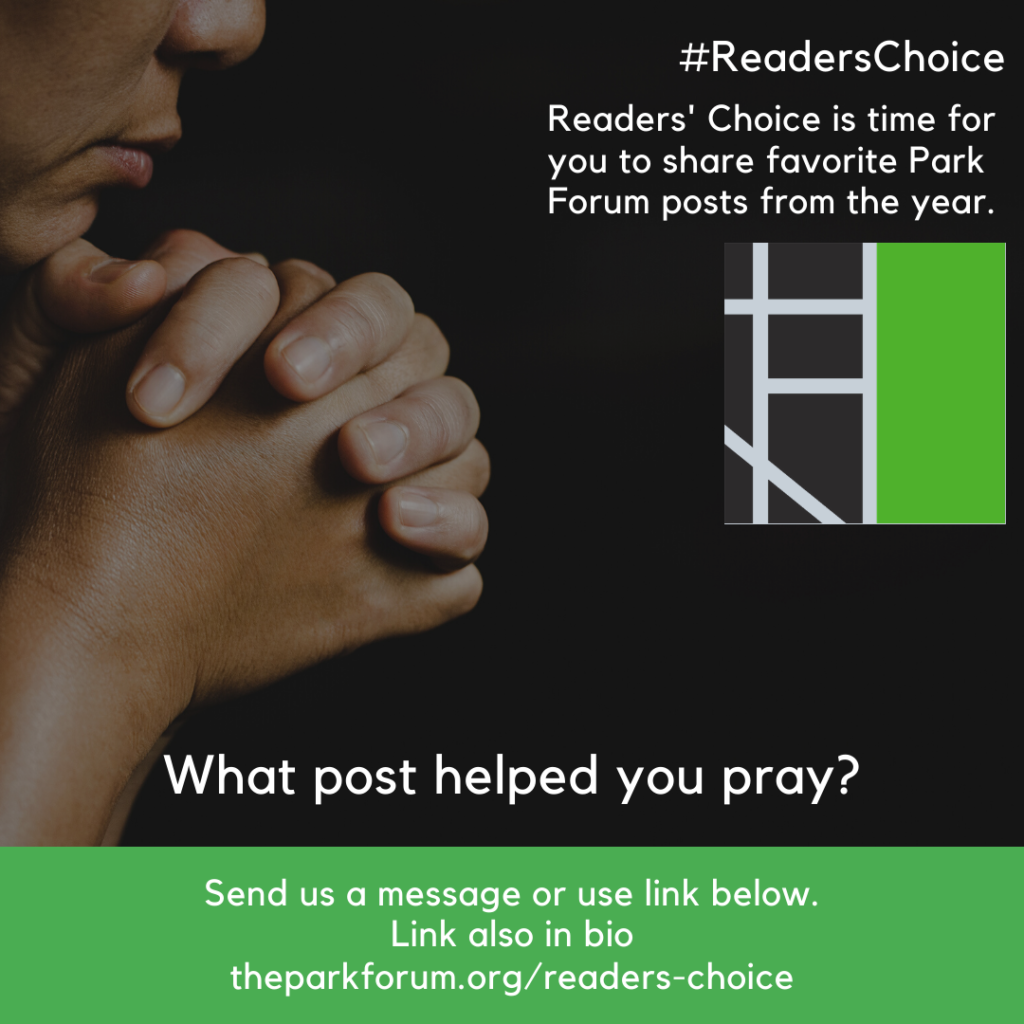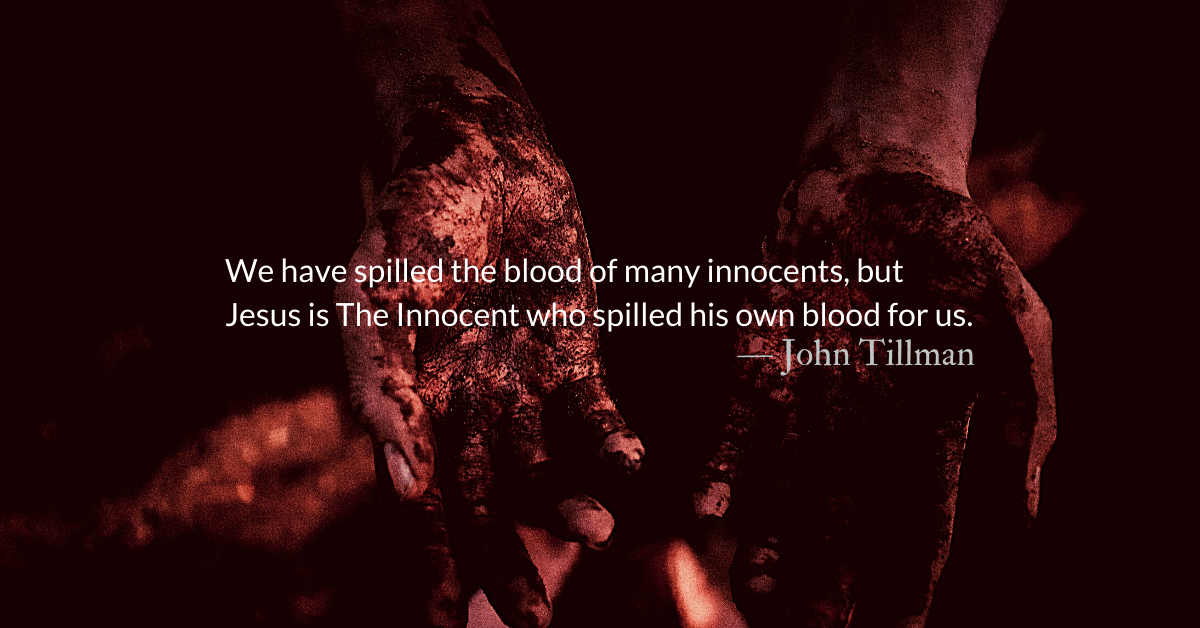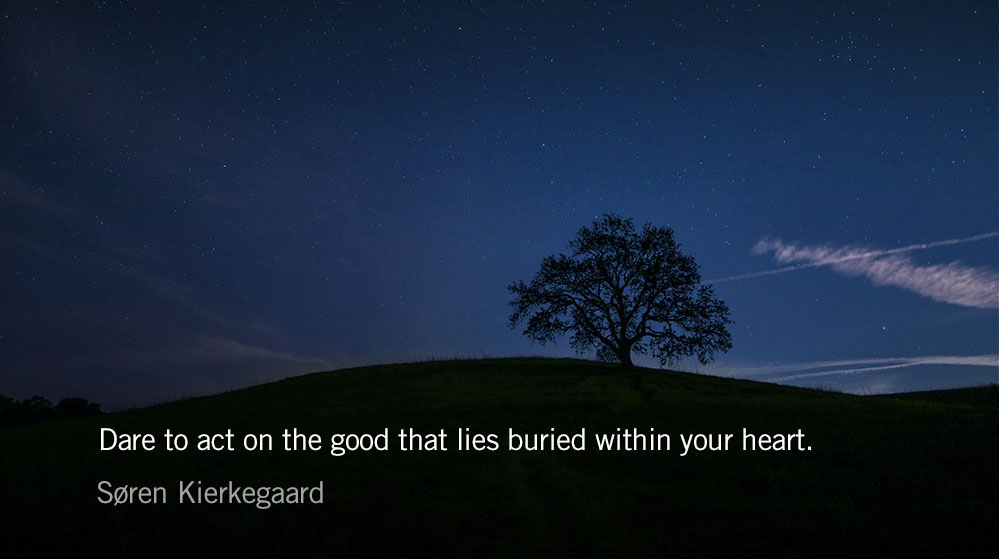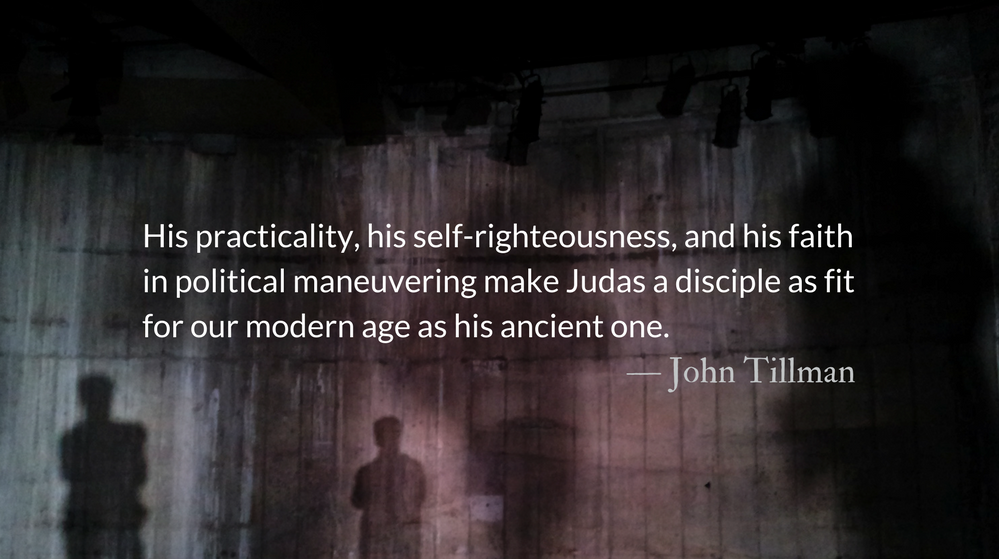Scripture Focus: Matthew 24.1-2
1 Jesus left the temple and was walking away when his disciples came up to him to call his attention to its buildings. 2 “Do you see all these things?” he asked. “Truly I tell you, not one stone here will be left on another; every one will be thrown down.”
Jeremiah 10.19-21
19 Woe to me because of my injury!
My wound is incurable!
Yet I said to myself,
“This is my sickness, and I must endure it.”
20 My tent is destroyed;
all its ropes are snapped.
My children are gone from me and are no more;
no one is left now to pitch my tent
or to set up my shelter.
21 The shepherds are senseless
and do not inquire of the Lord;
so they do not prosper
and all their flock is scattered.
Reflection: Cherishing Chaff
By John Tillman
Some buildings are great by age and grandeur and some by the gleam and glisten of modern glass and steel. However, no matter how impressive a building is when you walk, ride, or drive by it regularly, it becomes just a part of the scenery.
How impressive does a building have to be for you to still comment on it as you pass by, years later? Why would the disciples call Jesus’ attention to the impressive buildings of the Temple that both he and they had been worshiping in their entire lives?
The Temple had been standing for 500 years and had been extensively renovated and repaired by Herod during the disciple’s lifetimes. Perhaps the disciples were happy to see some scaffolding come down on an area that had been newly restored.
But the Temple’s shiny new sheen couldn’t distract Jesus’ eyes from the self-righteous deceit within and the suffering he saw over the horizon. The disciples saw the Temple as grand, renewed, and a symbol of strength and status. Jesus saw its present and future, sinful, destroyed, and humiliated.
Herod was a ruler of nominal faith at best. (Even that is being extraordinarily generous.) Herod was corrupt, a womanizer, boastful, and lived in a sinful relationship. He “liked to listen” to John the Baptist, but that didn’t stop him from cutting off the prophet’s head.
Herod’s work on the Temple wasn’t faith-driven. It was a political tactic to boost his status and generate support among the people—and it worked. Even the disciples of Jesus were impressed.
The Temple, and Herod, are just two examples of things unworthy of the esteem and attention the disciples gave them. Many things the disciples prized, Jesus recognized as poison. Many things they cherished Jesus called chaff in the wind.
What catches our eyes? What chaff do we cherish or poison do we prize? A building? A politician? A charismatic leader? An institution? Point out to Jesus what catches your eye. Seek his opinion on whether you should hold it up for honor or whether it is destined to be thrown down.
Physical idols, whether statues, buildings, institutions, or living humans, are the product of inward sin. We worship them instead of God because inwardly we refuse to trust God or we have denounced God. Allow the revelation of outward idols to lead you to discover inward attitudes that must be torn down.
Divine Hours Prayer: The Small Verse
My soul has a desire and longing for the courts of the Lord; my heart and my flesh rejoice in the living God. — Psalm 84.1
– Divine Hours prayers from The Divine Hours: Prayers for Summertime by Phyllis Tickle
Today’s Readings
Jeremiah 10 (Listen – 3:51)
Matthew 24 (Listen – 5:59)
Readers’ Choice is your time to share favorite Park Forum posts from the year.
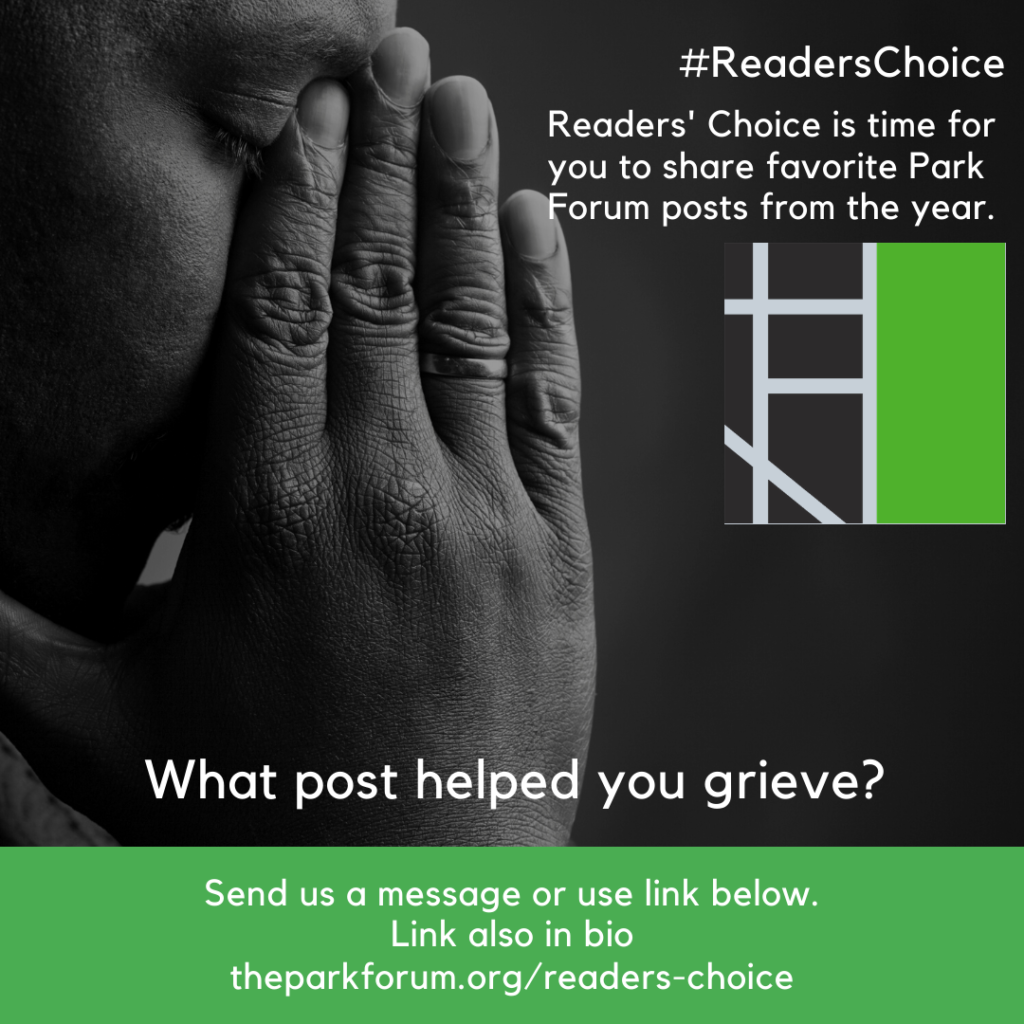
What post helped you with loss?
https://forms.gle/DsYWbj45y9fCDLzi7
Read more about Treasuring Our Temples
Judah treasured the Temple’s importance but not its inhabitant. They treasured the regalia, not the relationship.

